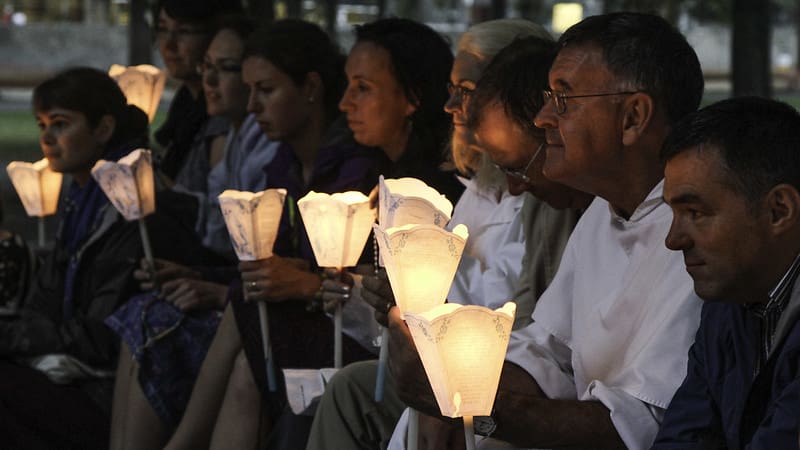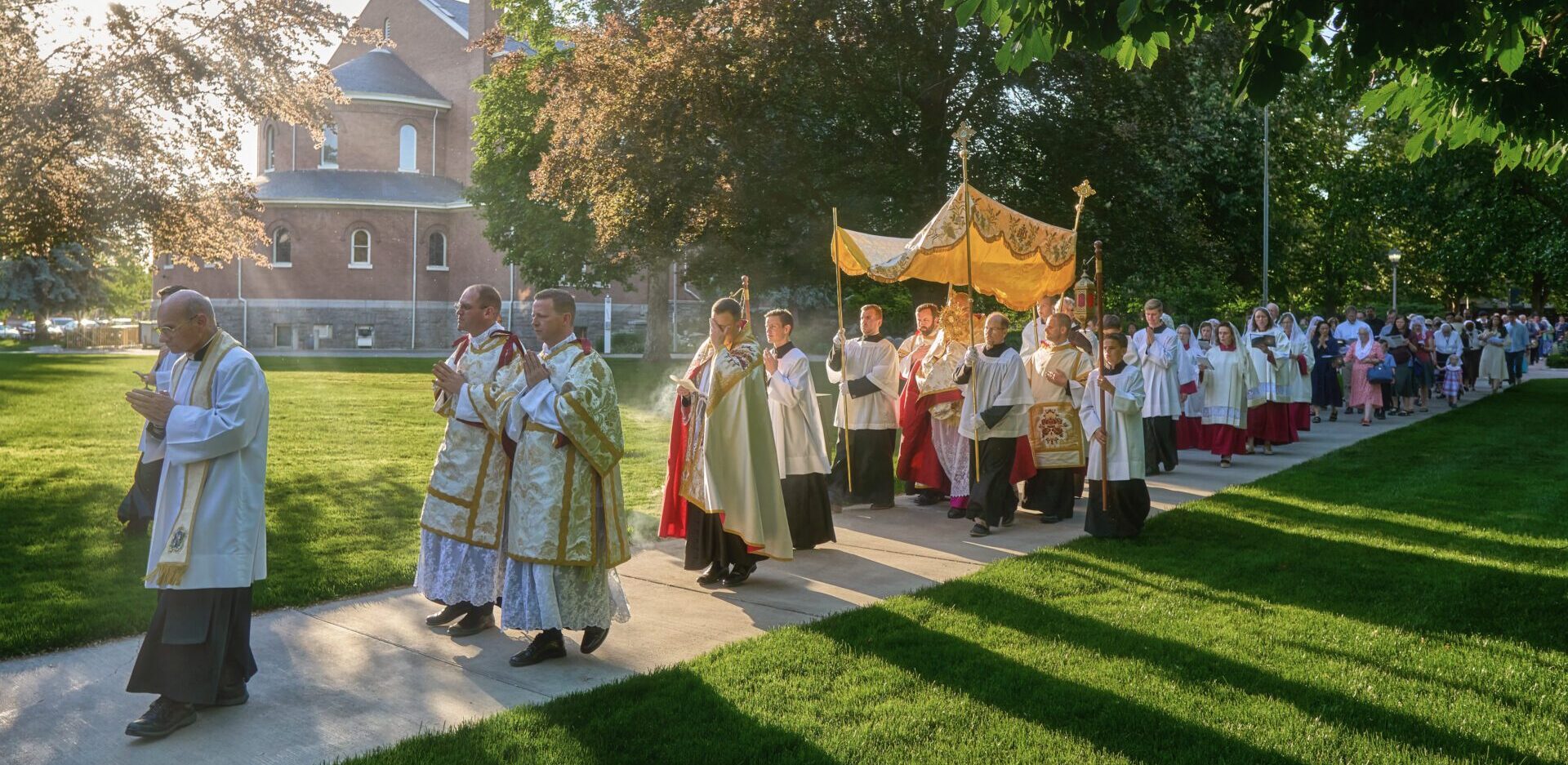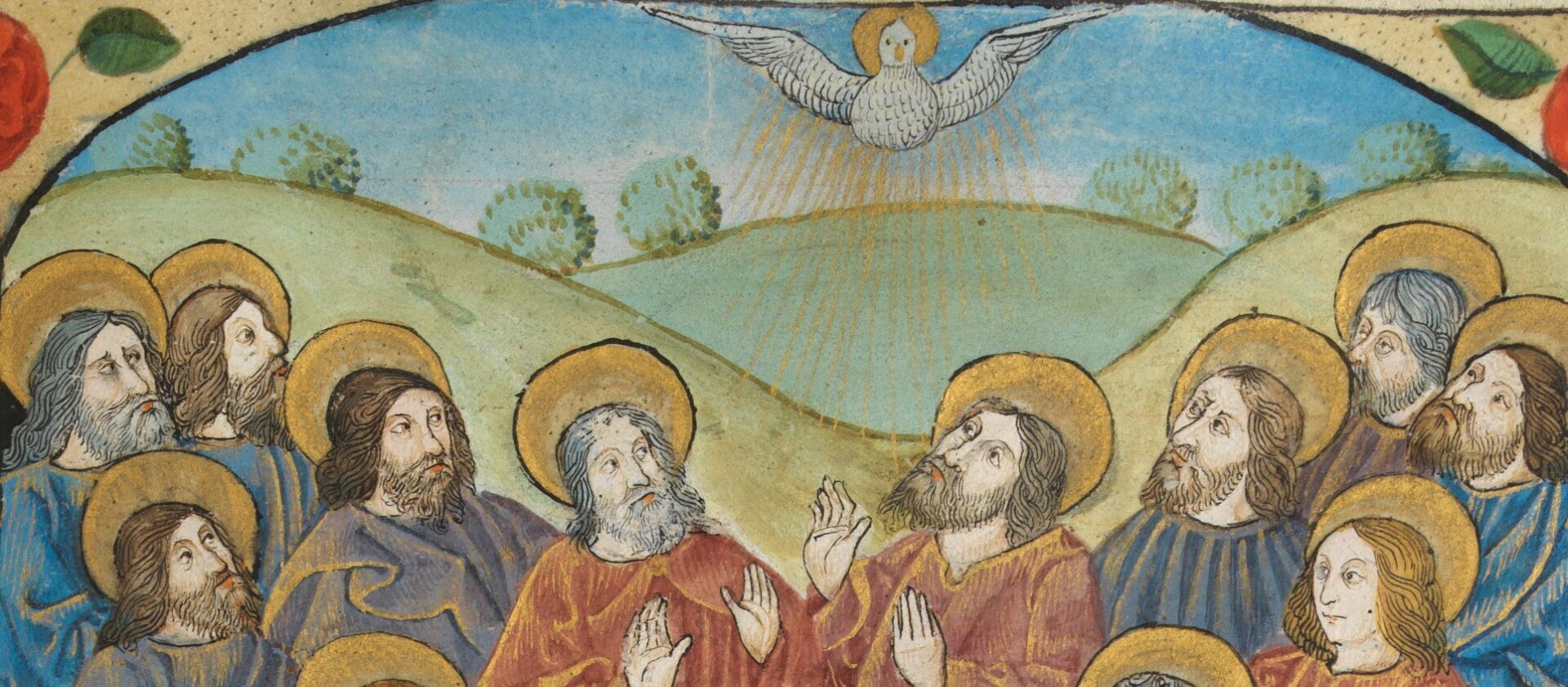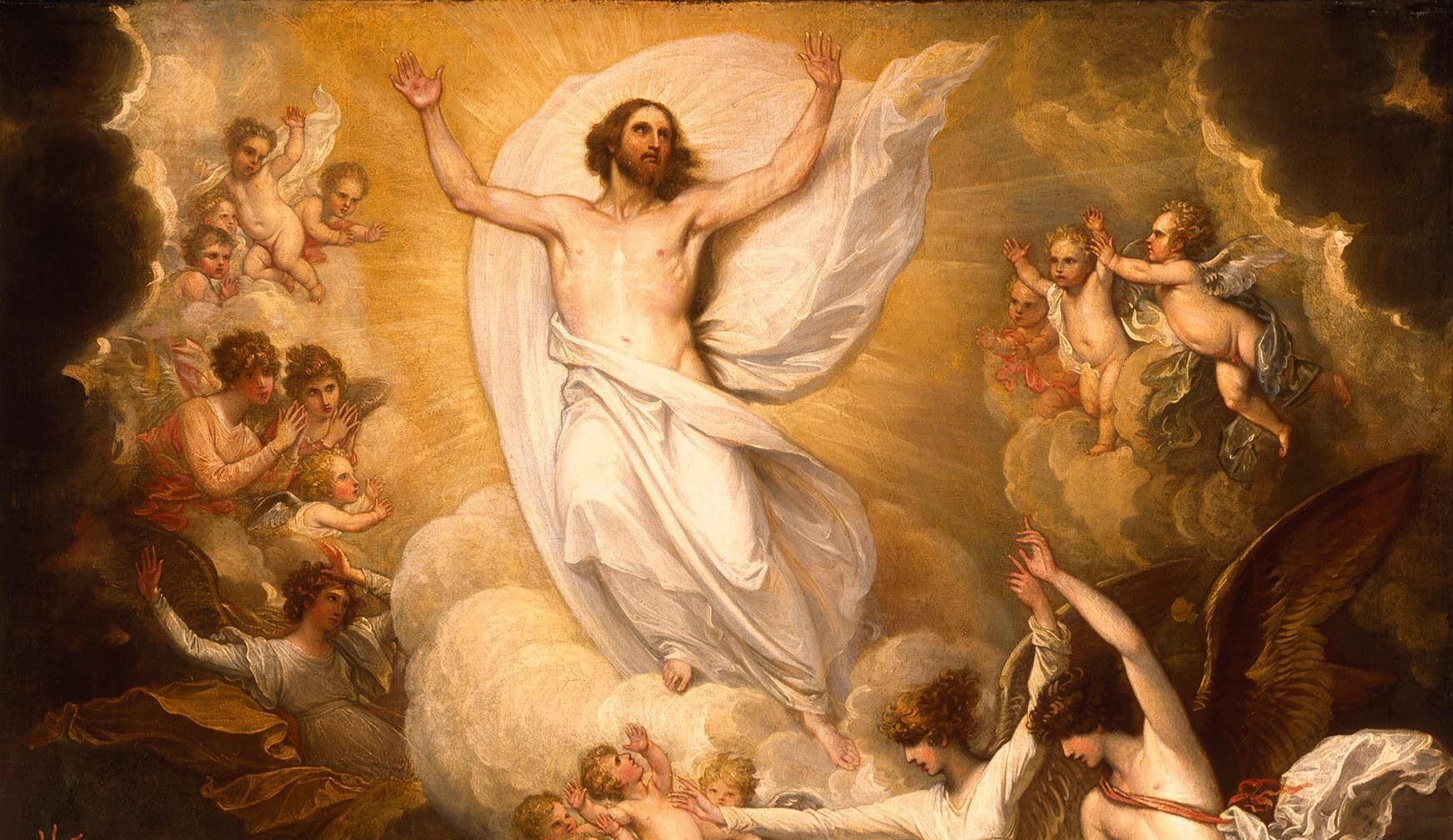The section of the Roman Missal called “Masses for Various Needs and Occasions” includes a number of formularies which pray for the mission of the Church in the world. These prayers refer to the evangelizing mission of all the members of the Church and to the Church’s role, through the activity of the faithful, to transform society according to the light of the Gospel. All of these sets of Mass formularies were found at least partially in the first typical edition of the Roman Missal in 1969. However, the third typical edition of 2002 made many of them complete formulas by adding entrance and communion antiphons where they were lacking.
Evangelization of Peoples
There are two complete Mass formularies “For the Evangelization of Peoples” (no. 18A, B). A rubric in the missal indicates that these formularies can be used in their entirety on any Sunday in Ordinary Time whenever there is some observance of the work of the missions. In that case, the prayers for “The Evangelization of Peoples” replace the proper prayers for that given Sunday in Ordinary Time. Such an occasion might be World Mission Sunday or the visit of a missionary to a parish or an occasion marking a sister-parish relationship overseas. Since no particular preface is indicated, the prayers “For the Evangelization of Peoples” are accompanied by one of the usual Sunday prefaces whenever used on that day. On a weekday, a celebrant may want to use these prayers in conjunction with Eucharistic Prayer III for Various Needs and Occasions, “Jesus, the Way to the Father,” as suggested in the missal itself. Apart from the first few lines of the first collect in set no. 18A, all the prayers from the two sets of formularies are entirely new to the three editions of the revised Roman Missal. The corresponding prayers found in the Roman Missal of 1962 were not taken over into the revised editions.
Laity
Like the prayers for evangelization, the Mass texts “For the Laity” (no. 10) recall the mission of the baptized faithful in making the Gospel known and building up the Kingdom of God by the witness of their lives. These prayers were new to the Roman Missal of 1969. Given the emphasis by the Second Vatican Council on the universal call to holiness of all the baptized and the mission of the lay faithful in the world, it is not surprising that a set of three orations comprising a Mass “For the Laity” appeared in the first edition of the revised Roman Missal. The third edition of the missal provided these orations with entrance and communion antiphons to round out a complete formulary. On a weekday, the missal suggests matching these prayers with Eucharistic Prayer II for Various Needs and Occasions, “God Guides his Church along the Way of Salvation.” These prayers can be used on the occasion of a retreat or a day of formation for the lay faithful.
Unity of Christians
The Roman Missal of 1962 included a Mass “Pro Ecclesiae Unitate.” The first typical edition of the revised missal in 1969 adopted these prayers and included two more sets of orations also entitled “For the Unity of Christians” along with a newly composed preface “For Christian Unity.” The emphasis of the Second Vatican Council on the need to foster ecumenical relations among Christians in order to arrive one day at the unity Christ willed for his followers no doubt played a role in expanding the number of orations in the missal which reflected this concern. The third edition of the missal in 2002 retained the three sets of prayers, all with alternate collects (no. 17 A, B, C), as well as the proper preface. Although the missal does not explicitly suggest it, the Masses “For the Unity of Christians” could appropriately be paired with the first two Eucharistic Prayers for Various Needs and Occasions, “The Church on the Path of Unity” and “God Guides His Church along the Way of Salvation,” along with their proper prefaces. These prayers could be used in particular during the Week of Prayer for Christian Unity (January 18-25). On days during the period January 18-25, when the full formulary is not permitted, such as January 25 itself or a Sunday, one of the collects could certainly be used with the short ending, “Through Christ our Lord,” in order to conclude the prayers of the faithful. In this way, the intention of praying for Christian unity can be maintained throughout the eight-day period.
Harmony
Three other sets of Mass prayers share a common concern with the establishment of peace, justice, and harmony in the world through the witness and action of Christians. These are the Masses “For Harmony” (no. 15), “For the Progress of Peoples,” (no. 29), and “For Peace and Justice” (no. 30 A, B). All the orations for these three related Mass formularies are new to the Roman Missal of 1969. Although the Roman Missal of 1962 had texts for a Mass “Pro concordia servanda,” none of those orations were included in the revised missal. The preface “For the Unity of Christians” could be used with the Masses “For Harmony” and “For Peace and Justice.” The missal also suggests using the third Eucharist Prayer for Various Needs and Occasions, “Jesus, the Way of the Father,” with the Mass “For the Progress of Peoples.” There are days during Ordinary Time when the lectionary readings may prompt a celebrant to use one or other of these Mass formularies. Otherwise, it seems their use may be limited to local celebrations intended to promote the social mission of the Church.
Reconciliation
Finally, the Church’s mission as an agent of reconciliation is highlighted in Mass formulary no. 16. This set of orations is new to the third typical edition of the Roman Missal. The two Eucharistic Prayers for Reconciliation with which these prayers can be paired had already appeared in an appendix to the second edition of the Roman Missal following the Jubilee Year of Reconciliation in 1975. They are likewise taken over into an appendix to the order of Mass in third typical edition. This Mass formulary may be used “on the occasion of special penitential time,” according to the missal. Formerly, the Wednesdays, Fridays, and Saturdays (Ember Days) at the beginning of each of the four seasons of the year were considered such penitential days. This Mass might therefore be used on those three days in the week following Pentecost and during the third week of September, according to the historical practice for the beginning of summer and fall. On the first week of Lent in the spring and the last week of Advent in winter, the collect with the short ending “Through Christ our Lord” could conclude the prayers of the faithful on those same three weekdays instead since the rubrics do not permit a Mass for Various Needs and Occasions on those days.
These Mass formularies highlight the mission of individual Christians in the world and the role of the entire community of the Church in hastening the coming of the Kingdom of God for which we pray daily. The Roman Missal also provides several series of orations which highlight the place of work and family in the daily life of the individual Christian. Those Mass formularies will be the focus of the next contribution to this series.
For previous installments of Msgr. Caron’s An Occasion to Celebrate series, see:
- Introduction: An Occasion to Celebrate: Discovering the Masses for Various Needs and Occasions and Votive Masses of the Roman Missal
- The Liturgical Calendar’s Role in Masses for Various Needs and Votive Masses
- The Lectionary Readings in Masses for Various Needs and Votive Masses
- Masses for the Church, Council or Synod, and Spiritual and Pastoral Gatherings
- Masses for Clergy and Religious
Msgr. Marc B. Caron, S.T.D., is the vicar general and the moderator of the curia for the Diocese of Portland, ME. He has served as a pastor, as the director of the diocesan Office for Worship, and as a chancellor of the diocese. Most recently, he was a member of the faculty of St. John’s Seminary, Brighton, MA, where he was also director of liturgy. In 2021, he received the doctoral degree from the University of St. Mary of the Lake/Mundelein Seminary, writing on the sacramental nature of the diaconate. He is the author of a number of articles which have appeared in The Jurist, Worship, Catechumenate, and Homiletic and Pastoral Review.
Imager Source: AB/Lawrence OP on Flickr



